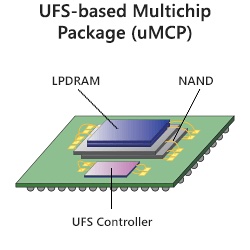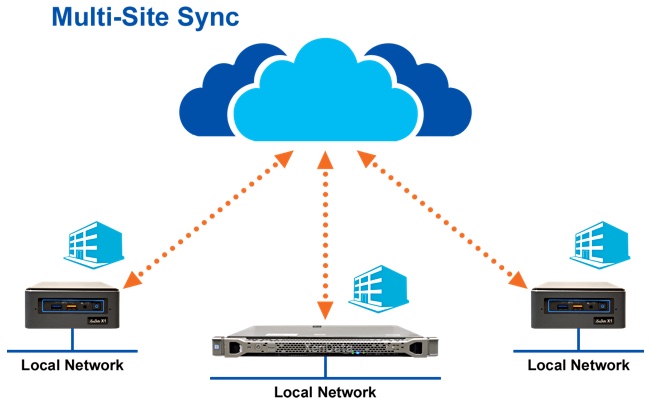Data growth provides the fuel for our main items in this week’s data storage news digest. Let’s get cracking.
Backblaze cloud storage reaches exabyte milestone
Backblaze, a cloud storage provider, is now storing an exabyte of user data. Not bad for the five founders who started out building their own cloud in a Palo Alto apartment, in 2007. BlackBlaze said its engineers are now looking at how to store one zettabyte.
The growth has looked like this:
- 2008 – 10TB
- 2010 – 10PB
- 2014 – 100PB
- 2015 – 200PB
- 2020 – 1000PB
It’s not possible to get a realistic figure of how much data is stored in AWS, Azure and Google. Those vendors don’t reveal that number.
Backblaze has gotten this far with just $3m in venture funding. All marketing to date has been via a blog and until this year word of mouth. There are now 145 employees and customers in more than 160 countries.
Quantum expands video surveillance line
Quantum has expanded its video surveillance line (now called the VS-HCI portfolio), which it introduced a year ago.
Jamie Lerner, Quantum CEO, said: “Video surveillance plays a vital role in securing infrastructure and critical assets, and in protecting citizens. We’ve applied our years of expertise to build a comprehensive portfolio for surveillance, and we are responding quickly to the needs of our customers.”
There are four new servers:
- VST mini-tower and VS4160 NVR rack mount network video recording servers
- VS2108 – a video analytics server with up to six GPUs inside its 2U enclosure
- VS1110 – a highly-available building management server
Quantum has also added secure remote monitoring for VS-HCI, using a web portal.
Could QUIC replace TCP/IP?
Lars Eggert, chair of the QUIC working group within the IEFT, is participating in an SNIA webcast about Google’s QUIC protocol. The webcast poses the question: will this new UDP-based transport protocol for the web replace TCP/IP? It broadcasts live on Thursday, April 2, 2020– 10:00 am PT / 1:00 pm ET and you can register online.
Eggert will discuss the unique design aspects of QUIC, its difference to the conventional HTTP/TLS/TCP web stack, and early performance numbers. He also looks at potential side effects of a broader deployment of QUIC.
QUIC was designed and deployed by Google and accounts for 35 per cent of the company’s egress traffic. This in turn corresponds to about seven per cent of all internet traffic.
There is strong interest in QUIC from other large internet players and the ongoing IETF standardisation of QUIC is likely to lead to an even greater deployment in the near future, according to the SNIA.
Tardigrade decentralised cloud storage service
Storj Labs has launched the S3-compatible decentralised Tardigrade cloud storage service, and is offering service-level agreements at 99.9999999 per cent durability. The company claims end-to-end prices are a fraction of the traditional cloud providers.
Customers will receive 5GB of storage and bandwidth free for the first 30 days. After that, they move to Tardigrade’s storage tariffs, which are about half of cloud storage providers’ list prices, according to Storj. They can also earn additional credits via Tardigrade’s referral program. The platform currently has more than 19PB of available capacity, which is hosted by individuals and partners.
With the Tardigrade Open Source Partner Program (OSPP), any open source project with a Tardigrade connector will receive a portion of the revenue generated by those users for their cloud storage bills. This helps address the challenges open source software companies have faced when trying to monetize workloads in the cloud, Storj said.
John Gleeson, Storj vice president of operations, provided a quote: “Over 80 per cent of cloud workloads run on top of open source software, however these companies only receive a small percentage of the revenue. We’re pleased to launch Tardigrade into production so our open source partner program members can start generating revenue when their users store data in the cloud.”
Amazon S3-compatible applications can use the service by changing a few simple parameters. There is also a library of bindings for some of the most popular coding languages, including Go, Android, C, .NET/Xamarin, Node.js, Swift, and Python.
Storj tried this with bitcoin payments back in 2017.
Pandemic-related data storage offers
Commvault is offering a customer care programme available at no charge through September 1st. The no-strings attached offers include.
- Metallic End Point Backup and Recovery SaaS-based software with Microsoft (in the US and Canada only) to help organisations with remote workforces.
- For organisations worldwide, Commvault Complete Backup and Recovery software will enable protection and management of data in cloud environments or on-premises. Details are on their way.
- Creation of a critical alert program to monitor customer systems and provide alerts on unusual changes in their data protection environment.
- Training and e-learning videos, virtual and self-paced courses – to learn ways to optimise data management.
- Online live, weekly sessions with Commvault data experts.
- Blog series addressing relevant topics.
Druva is offering a 6-month free trial of protection for Office 365 and endpoint protection for up to 300 seats.
HYCU is offering unlimited backup to all new Italian customers, free of charge for three months, valid until June 30, 2020. Simon Taylor, HYCU’s CEO, issued a quote: “At this point in time, any company that is dealing with the unexpected rise of self-quarantining and moving critical workers to a remote or at home situation is disruption enough. The least we can do is to offer our support as businesses try to deal with unanticipated costs and significant transition in supporting their workers.”
LucidLink said it has been inundated with requests from companies that use a NAS and/or fileserver in their office and need to ensure their employees can effectively work at home. They all need to move their files and data to the cloud where they can be universally accessible, create as little disruption to current workflows as possible and not sacrifice the user experience. The company has cut the capacity fee in half from $20/TiB to $10/TiB per month, and has eliminated the connected device / per user fee.
SpectraLogic will produce a virtual conference to enable interaction, education and engagement between customers, partners and Spectra executives. It will take place on Tuesday, May 12, 2020, and will enable attendees to ‘walk the floor’ by hearing about the latest market trends, learning about Spectra products, asking questions, sharing feedback, watching product demonstrations, and meeting with Spectra executives.
Data protector Unitrends is offering:
- Free backup hardware
- 50 per cent off direct to cloud backup to protect remote workers even via Wi-Fi
- 50 per cent off O365 backup, along with its recently released built-in dark web monitoring
- US-based support is here for customers 24x7x365
Shorts
Hitachi Vantara has completed the acquisition of the assets of Waterline Data, a developer of intelligent data cataloging products. HV has announced the Lumada Data Catalog which incorporates Waterline technology and expands DataOps solutions across edge-to-core-to-cloud environments.

Micron has begun sampling a multichip package (uMCP) for 5G smartphones which combines 12GB of DRAM with 256GB of NAND. This uses a 512Gbit of 96-layer 3D NAND die with 2-channel LPDDR5 DRAM. The DRAM uses 10nm-class technology and reaches up to 6,400 Mbit/sec. The idea is that 5G phones will do more multi-tasking and a multi-chip package uses up to 40 per cent less space than a 2-chip combination.
NAKIVO Backup and Replication v9.3 peta testing continues. Its new functionality allows you to manage backup and recovery of Oracle databases from the NAKIVO Backup & Replication console.

XenData has launched the Multi-Site Sync service for cloud object storage which creates a global file system accessible worldwide via XenData Cloud File Gateways. They work with Amazon Web Services S3, hot and cool tiers of Azure Blob Storage and Wasabi S3. XenData gateways are optimised for video files, supporting partial file restore and streaming. This makes the solution a good fit for media applications, according to the company.








